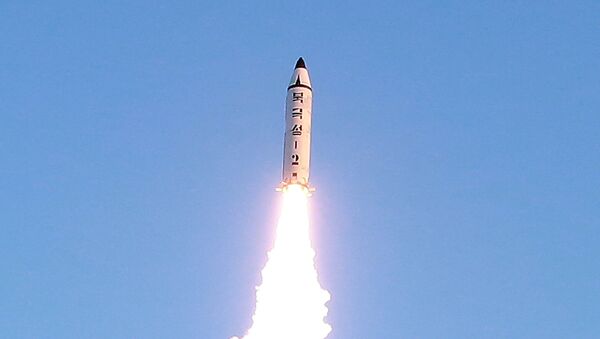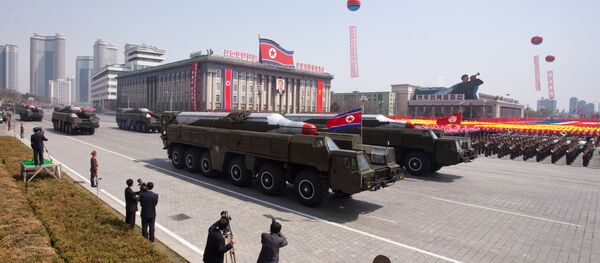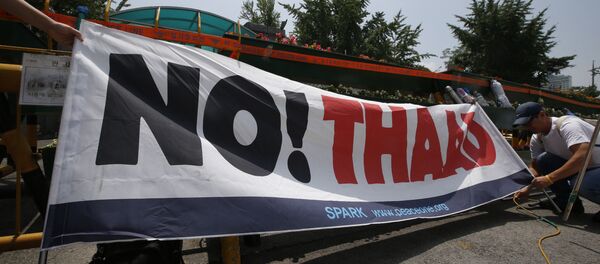Sunday's test, which coincided with the Japanese Prime Minister's official visit to the United States, was supervised by North Korean leader Kim Jong-un, according to state news agency KCNA. The missile, reported to have been a Pukkuksong-2 intermediate-range missile, can carry a nuclear payload, and has an estimated operational range of up to 2,000 km. Launched from an airbase in the western province of North Pyongan, the missile was reported to have traveled about 480 km before plunging into the Sea of Japan. Pukkuksong-2 is a variant of the submarine-launched Pukkuksong-1, whose testing began in 2014.
North Korea's neighbors warned Pyongyang that they saw the latest missile launch as a provocation, and a violation of a UN Security Council resolution prohibiting it from carrying out ballistic missile tests. In recent years, the international community has leveled a series of sanctions against North Korea over its missile and nuclear program, but the country has moved ahead with testing anyway, citing the need to defend itself against US and South Korean aggression.
Russia, for its part, condemned Sunday's missile test. Speaking to Sputnik, Duma International Affairs Committee Chairman Leonid Slutsky said that "Pyongyang's unpredictable actions provoke a new spiral of tensions near Russia's borders." However, at the same time, the lawmaker emphasized that piling on more sanctions wouldn't be an effective solution, with expanded political and diplomatic efforts being the best way to return Pyongyang to six-party talks on nuclear disarmament.
Speaking to Radio Sputnik about the missile test, security expert Tong Zhao suggested that contrary to public perceptions, "North Korea has actually refrained from any major military provocations, including missile tests, over the last three months, which sends a signal that North Korea is actually waiting for the Trump administration to clarify its policy toward Pyongyang."
"North Korea is apparently very interested in having a talk with the new administration, but with the upcoming US-South Korean joint military exercises in March, that window of opportunity for diplomatic engagement is quickly closing," Zhao added.
Accordingly, he explained, "this recent missile test is meant by North Korea to send a 'gentle reminder' to Mr. Trump that North Korea is still waiting, and they hope that this missile test can prompt Trump to seriously reconsider the reengagement option with North Korea."
Asked whether the test may have also been a signal to Japan, given that it took place during Prime Minister Abe's visit to the United States, Zhao said that he found that to be a less likely prospect. The only real source of conflict between Pyongyang and Tokyo, he said, are the US military bases based in Japan.
As for the prospect of the UN imposing additional sanctions against Pyongyang over the test, Zhao suggested that the chances of this occurring are pretty low, given that the test was probably "not provocative enough for the Security Council to take tough measures." With that said, the analyst noted that individual UN members, including the US and other nations, might impose unilateral sanctions against the country.
At the same time, Zhao emphasized that there is actually very little room for effective economic sanctions. "That's why I think we need a radical reconsideration of the general approach to dealing with North Korea. Simply implementing incrementally more and tougher sanctions won't be able to make North Korea change its decision on nuclear and missile programs."
Zhao explained that "on the North Korean side, the sole objective of the missile and nuclear program is to achieve a nuclear deterrent. Therefore, if South Korea and the US deploy more missile defense, that will only encourage North Korea to double down on increasing both the quality and the quantity of its offensive missile arsenal. The result will be an arms race between North Korean missiles and South Korean missile defense deployment."
Therefore, according to the security expert, the only way forward is diplomacy.




